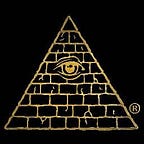The Zodiac Die
By Steve Jackson
NOTE: This article originally appeared in Hexagram #7. Click here to learn about Hexagram, a zine for The Fantasy Trip roleplaying game.
In its finished version, The Zodiac Die is a great item for dice collectors. The astrological symbols are super readable, in crisp white on a black background. They use my favorite astrology font (I would have happily paid for one, but this is public domain; you can use it too.) And the die is a giant — it’s a full 30 mm.
It’s very useful, and a lot of fun, as a character creation tool . . . but that isn’t why I originally wanted to produce it. No, I confess it: the reason was much simpler! I just thought that it would be a cool idea to do a d12 with the Zodiac symbols on it. I like dice, and that seemed like a good idea that hadn’t been done yet. I am not disappointed at all. It’s beautiful!
It’s the 16-page booklet, though, that makes it a thoroughly useful game supplement. Faithfully following the tenets of modern Western-style astrology, it lays out a system for using three rolls of the die to create a detailed description of a character’s personality. That’s 12 to the third power, or 1,728 — a big enough number that you don’t have to worry about repetitions. Every character has a sun sign, a moon sign, and a rising sign, or “ascendant.” Associated with these, we find:
• A calendar range for their birthday.
• A color.
• A metal.
• A particular physical vulnerability. These can be used to determine
the area of injury from a trap or random arrow, or as a hint where disease might strike.
• Facets of the character’s personality, which combine in different
ways.
• Some particular generic game modifiers based on the personality.
For instance, Aries is a bad liar, and receives a penalty on any attempt to fool others. But Aries is also generous and will react well to a request for help.
This book is not a primer on astrology, nor is it meant to be retroactively applied to existing PCs who already have their own lives. Rather, it is a tool to quickly generate a personality for a randomly met individual, or to get hints about a new character you are creating. The Zodiac Die booklet is system-free. The game modifiers which it describes are given in general terms, so GMs can apply them as they see fit.3 But I made sure they all applied well to TFT!
Here’s something that I did not think of when I was putting the book together, so here it is now, as a bonus! This is a way to use The Zodiac Die to predict the future . . . specifically, to get hints about what might happen to a PC during the adventure. You’ll need an astrology column from the newspaper or a printout from the Internet. The date doesn’t matter at all!
You can approach it two ways. It can be used with an in-game event: the players visit a wizard who casts their horoscopes or foretells their future in some other way. Or it can be used in secret by the GM who wants a bit of inspiration.
Either way, just roll the die for each character. Then consult your chosen astrology column, and voila! The result may be cryptic (“A day for decisiveness! Or is it?”) or very specific (“Avoid women in blue, especially those carrying huge swords.”) If you’re using it in-game, just tell each player their fortune, and see what they do. Of course, you can nudge your players toward getting their fortunes told in the first place. Perhaps it’s a local custom; perhaps the Astrologers’ Guild owes them a favor and is paying it off by reading the stars.
If you’re using it as pre-game inspiration, ask yourself how each fortune might line up with existing game events. Even if four are nonsense, the fifth may be exactly what you want. (Aha! Women in blue? There’s a rival city-state whose army wears blue. We must be going to war!)
Either way, let your players see you roll the mystic die and (behind the screen, of course!) consult the “Book of Fate.” Then deliver the judgment of the stars!
1. In which I emphatically do not believe, any more than I believe in dragons, but they are both fun for games!
2. However, it would make a great personality quirk to have a character who believed wholeheartedly in astrology and used this die to determine their own actions. Or you might decide, based on a PC’s history, that she is a Leo, and assign her that sign for the future.
3. That being said, there’s a great article by Stefan Jones in Hexagram #2, “Horoscopy and Cosmic Alignment: Astrology on Cidri,” for those who want to delve more deeply into the mysteries of a universe where astrology does work.
